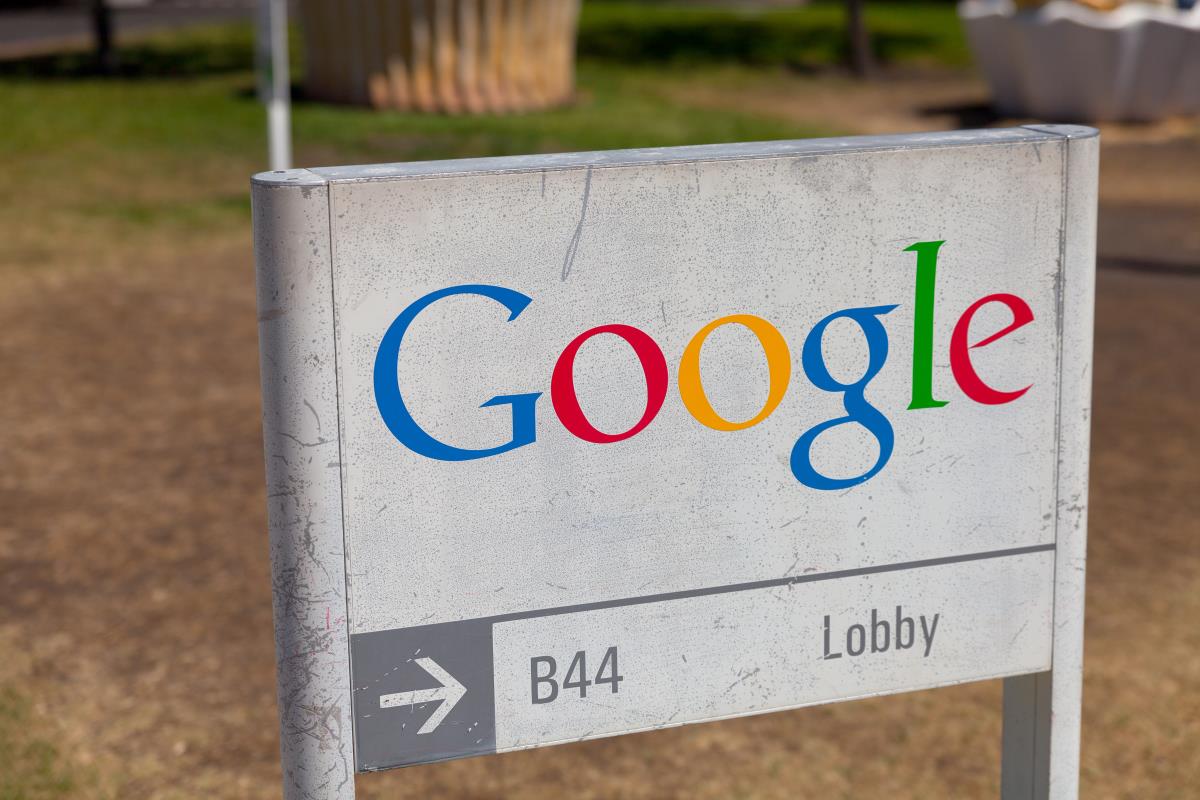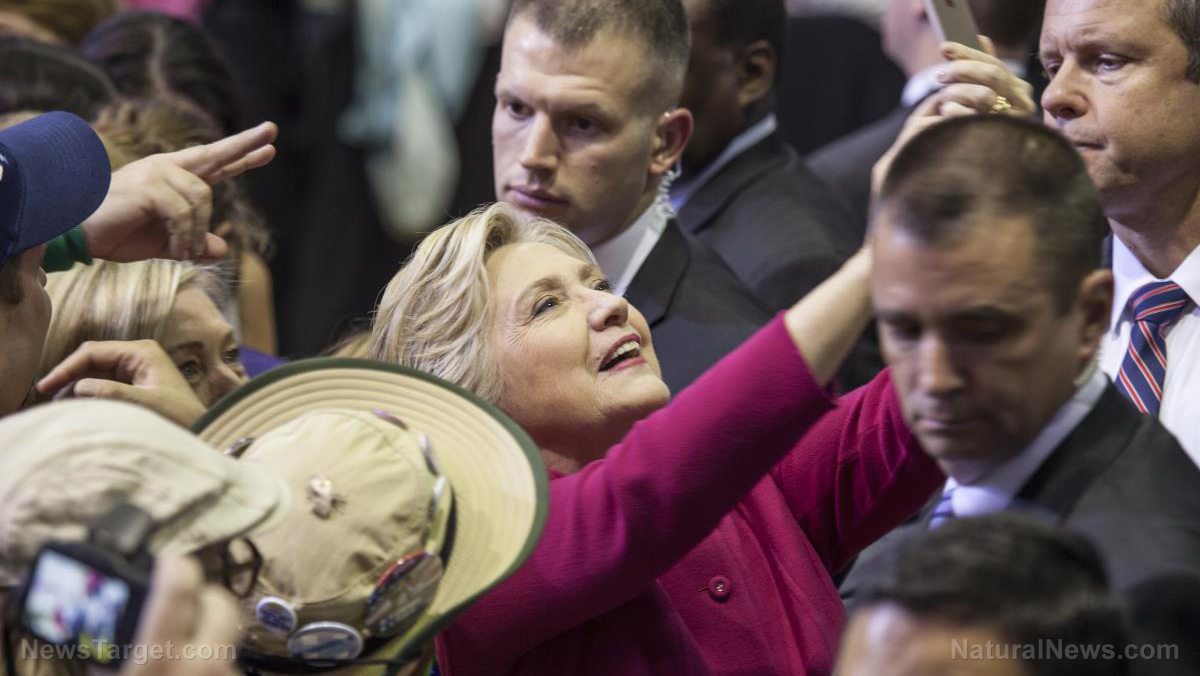CORRUPT: Leaked documents show how Obama’s FTC FAILED to stop Google’s monopoly after it helped Obama win second term
03/25/2021 / By Arsenio Toledo

Leaked documents from a Federal Trade Commission (FTC) investigation show that former President Barack Obama’s administration had a chance to prevent big tech company Google from monopolizing the market but chose not to.
In the early 2010s, as Americans were beginning to flock towards smartphones, Google was able to hammer out multiple exclusionary contracts that made it the default search engine on many of these mobile phones.
“The contracts at the center of the fight made Google the default search engine on almost all U.S. smartphones and locked in that exclusivity for years, giving the company a major advantage,” wrote Politico tech reporter Leah Nylen.
In June 2011, antitrust regulators in the FTC appointed by Obama began an investigation into these exclusionary contracts and other potentially anti-competitive behavior. The regulators wanted to figure out whether the company was violating antitrust laws in any way to give its own search engine an unfair edge over its competitors.
This began a 19-month-long investigation that went nowhere. By Aug. 2012, dissent was forming from within the FTC. The commission’s lawyers wanted to sue Google, or at least pursue some kind of settlement. But the agency’s economists recommended that the probe be closed without taking any action against the tech giant.
At one point, after the 2012 election, Google’s lawyers even approached the administration to offer their own settlement deal.
By Jan. 2013, the FTC commissioners voted unanimously to close the investigation without acting against Google. This, despite the fact that the investigators concluded that the tech giant’s very well-documented attempts to dominate the mobile internet search market were illegal.
Then-Chairman of the FTC Jon Leibowitz even admitted that the commission found evidence that Google changed its search algorithm to hamstring its competition.
“In its antitrust suit against Google last October, [the Department of Justice] revealed that the company pays as much as $12 billion a year to Apple alone to keep its search engine as the default on iPhones, iPads and the Safari browser,” wrote Nylen.
Decision reveals close relationship between Obama admin and Silicon Valley
The decision not to sue Google despite all the evidence clearly pointing to it having violating antitrust regulations has led the country to its current position, with the tech giant as “the primary filter of the world’s information,” according to Rachel Bovard, a journalist for The Federalist.
“[Google is now] subject to an antitrust lawsuit led by the Department of Justice and joined by 48 states attorneys general,” said Bovard, who believes that this position “could have, and should have, been avoided.” (Related: More states joining antitrust lawsuit against Google over rigged ad business.)
According to Bovard, the most stunning takeaway regarding the leaked documents from the FTC investigation is the extent to which the commission’s lawyers were ignored in favor of the recommendations of the agency’s economists.
The attorneys believed that Google’s exclusionary contracts were clearly anti-competitive. The economists objected to this interpretation of the facts and insisted that Google’s market dominance would soon fall in the face of competition from Mozilla and Amazon. They also argued that the mobile distribution channel for search engines was far too small a market for Google’s behavior to be relevant.
The lawyers wanted to sue, or at the very least arrange some kind of settlement with the tech giant. The economists were able to outmaneuver the attorneys, and they convinced the commissioners to drop the investigation.
“The FTC’s decision to let Google off the hook reflected an era when the Obama administration had a close relationship with Silicon Valley and Americans held largely positive views toward the emerging tech giants,” wrote Nylen. “But the documents also demonstrate how the Obama-era FTC took a cautious approach to antitrust enforcement, deferring to the wisdom of the agency’s economists over its lawyers.”
Bovard believes that the FTC “was not acting in a vacuum.” Four of the FTC’s five voting commissioners were appointed by Obama.
Obama had a special relationship with big tech. In 2016 the New York Times described Obama as “America’s first truly digital president” who “routinely pushed policy that pleases the tech-savvy.” Obama also boasted about his “deep and meaningful connections” with tech giants like Apple’s Steve Jobs, Microsoft’s Bill Gates and Facebook’s Mark Zuckerberg.
In the 2012 election, Google employees were the second-largest source of campaign donations by any single U.S. company, bested only by Microsoft. Multiple Google employees went on to serve in the White House as senior aides, and company executives were drafted to serve on advisory panels.
This relationship between Google and Obama was further cultivated during the entire length of the FTC’s investigation. In 2015, the Wall Street Journal even reported that the Obama administration’s relationship with Google was very unusual.
The WSJ found that Google representatives were able to get no fewer than 230 meetings with senior White House officials, or one meeting a week. Google’s top lobbyist, Johanna Shelton, was in more than 60 meetings. By Apr. 2016, Shelton had been in 128 meetings.
Google also reportedly attempted to dictate to the FTC how the commission should discuss both the company and the antitrust case against it.
Based on all the evidence, Bovard concluded that, since Google helped Obama win a second term, the president and his staffers put their thumbs on the scale to convince the FTC to not pursue any lawsuit against the company.
Republicans call hearing to investigate Obama FTC’s decision not to sue Google
Republican Sen. Josh Hawley of Missouri is leading the effort to investigate why Obama’s FTC decided to not sue Google. He is joined by fellow Republican Sens. Mike Lee of Utah and Marsha Blackburn of Tennessee.
On Thursday, Mar. 18, the three senators penned a letter to Democratic Senate Judiciary Committee Chairman Dick Durbin of Illinois calling for a public session to “conduct oversight into enforcement – or underenforcement – of our nation’s antitrust laws.” In the letter, the senators said:
“Confronted with the most consequential antitrust case in a generation and ample evidence of market dominance and misconduct, the nation’s antitrust enforcers failed to act… The FTC’s inaction has had broad-sweeping implications for our economy, our culture, and our democracy … far beyond the actions and market power of a single firm.”
The senators added that the FTC’s failure to act was a “signal” for other corporations who were beginning to dominate their own spaces in the market “that compliance is optional.”
They want the regulators who were responsible for letting Google walk away without paying for its crimes to be held to account for allowing the “unprecedented economic concentration” the country is currently experiencing.
The senators penned a separate letter to acting FTC Chairwoman Rebecca Kelly Slaughter urging the commission to cooperate in case the Democratic-held Senate agrees to a hearing.
The FTC has declined to comment on the matter. Google has dismissed the attempt to complain about a 2013 decision as a “D.C. parlor game.”
Learn more about how big tech corporations like Google were able to accumulate so much power and dominance in American society by reading the latest articles at TechGiants.news.
Sources include:
Hawley.Senate.gov [PDF]
Tagged Under: antitrust, barack obama, bias, Big Tech, conspiracy, corruption, Federal Trade Commission, ftc, Google, investigation, lawsuit, market dominance, monopoly, Obama, Politico, rigged, tech giants
RECENT NEWS & ARTICLES
COPYRIGHT © 2017 SEARCH ENGINE NEWS




















